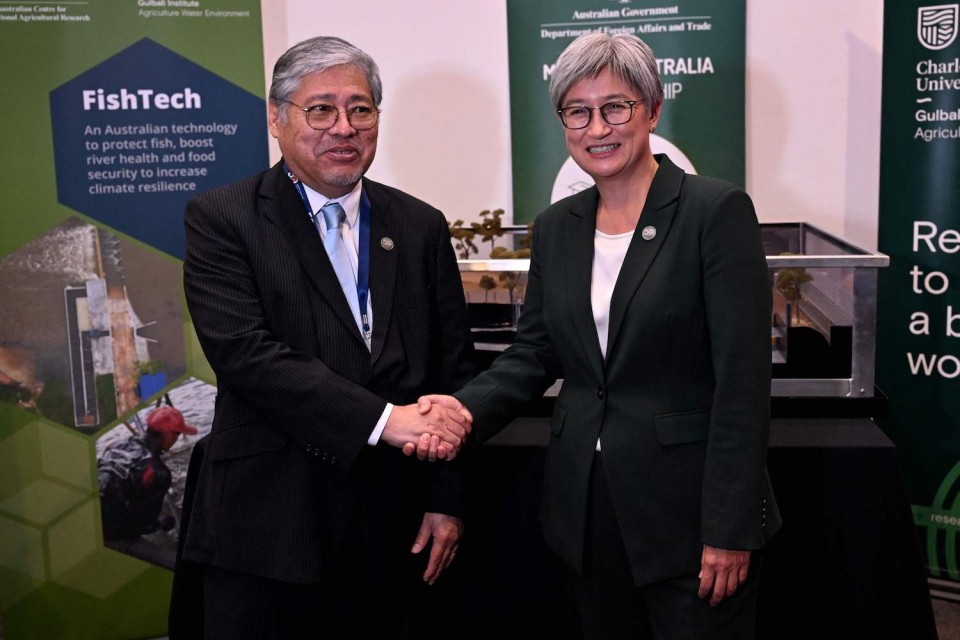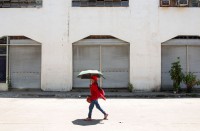
By Steven TRASK
MELBOURNE, March 4, 2024 (AFP) – Leaders from Southeast Asian nations and Australia gathered in Melbourne on Monday are expected to denounce the “threat or use of force” to settle disputes in the region, a collective swipe at China.
“We strive for a region where sovereignty and territorial integrity is respected,” a draft joint ASEAN-Australia statement obtained by AFP read.
“We strive for a region where differences are managed through respectful dialogue, not the threat or use of force.”
Beijing’s aggressive stance in the South China Sea is tipped to feature prominently in three days of discussions.
Territorial disputes in the vital trade corridor have escalated in recent months, with China baring its teeth in areas also claimed by ASEAN members such as the Philippines and Vietnam.
“We all have a responsibility to shape the region we want to share: peaceful, stable and prosperous,” said Australia’s Penny Wong, the host foreign minister.
“This is more important than ever with the region’s character under challenge,” she said.
“We face destabilising, provocative and coercive actions, including unsafe conduct at sea and in the air and militarisation of disputed features.”
Talks are also expected to focus on economic cooperation, as countries like the Philippines and Australia look to insulate their economy against retaliation from China.
– Trade, security –
Philippines Foreign Minister Enrique Manalo told AFP that economic resilience was a crucial part of ensuring security and sovereignty are upheld.
As part of that effort, he said the Philippines hopes to launch formal free trade agreement negotiations with the European Union “very soon”.
The Philippines is focused on creating “greater economic security and economic resiliency, which in turn contributes to your own national security”, Manalo said.
“What we’re really aiming for is the notion of greater economic resilience,” the minister said, underscoring the importance of being able to adapt to “sudden changes”, whether human-made or natural.
Climate change also looms large.
Southeast Asia’s hunger for energy is largely sated by fossil fuels, while Australia remains one of the world’s biggest exporters of gas and polluting thermal coal.
Both are increasingly eager to pivot toward renewable energy, making the most of natural blessings, such as bulging deposits of critical minerals.
“ASEAN countries need more energy if they are going to continue developing their economies,” said Rahman Yaacob, a regional analyst with Australia’s Lowy Institute.
“Australia could be a source of that energy.”
Indonesia and the Philippines are two of the world’s largest producers of nickel, a key ingredient in the production of batteries for electric cars.
Another key battery metal, lithium, is found in vast quantities scattered throughout Australia.
Jakarta and Canberra have already started exploring how they could mesh these advantages to boost electric vehicle manufacturing.





